This is the moment an injured kudu bull got its life taken away by 2 hungry hyenas.
The footage reveals just how tenacious hyenas can be when it comes to grabbing a nearby meal.
Stephan Greyvenstein was traveling in the Kruger National Park when he came across this sighting.
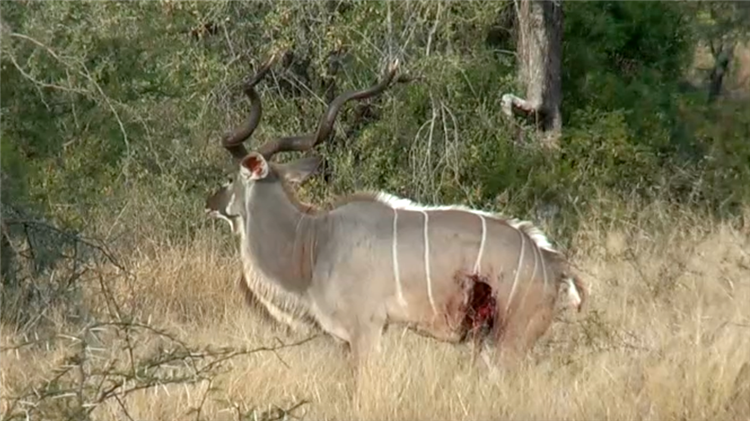
He spotted an injured kudu bull next to the road; “we don’t know how it got injured. Then suddenly, right out of the corner of our eyes, we spotted 2 hyenas. These hyenas saw the kudu and gave chase. They chased it right in front of the car before bringing it to the ground and starting to eat it alive.’
He spotted an injured kudu bull next to the road; “we don’t know how it got injured. Then suddenly, right out of the corner of our eyes, we spotted 2 hyenas. These hyenas saw the kudu and gave chase. They chased it right in front of the car before bringing it to the ground and starting to eat it alive.’
Despite being bitten by a pack of African wild dogs to the point of sticking out their intestines, the impala was determined to fight to the end to try and save his life.
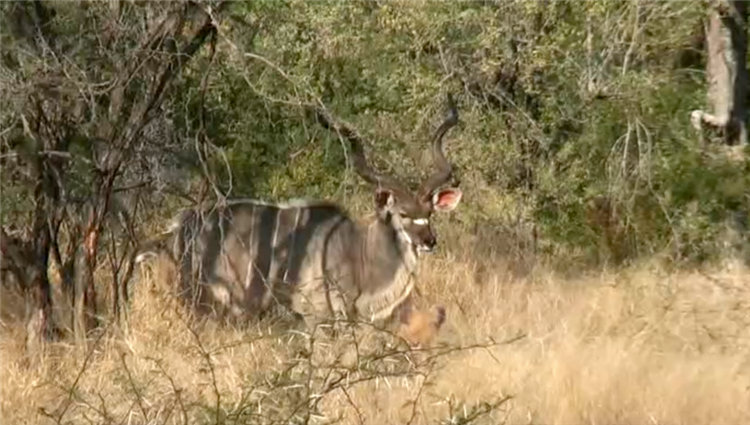
Footage of the impala’s tragic moment, captured by a visitor at Kruger Nature Reserve (South Africa), shows the moment an impala was knocked down by an African wild dog.
While the African wild dog was biting its prey to enjoy the fruits of the hunt, suddenly the antelope stood up, using its horns to fight off the predator. Because the antelope’s belly skin had been bitten by a wild dog before, the antelope’s intestines and organs fell out when the animal stood up.
The impala now seems to have not felt the pain, using all of its remaining strength to fight off the predator.
However, the last desperate efforts of the impala were not enough to keep the animal alive. Other African wild dogs in the pack quickly appeared, surrounding the critically injured antelope. Not long after that, the impala accepted its fate as a meal for wild dogs.
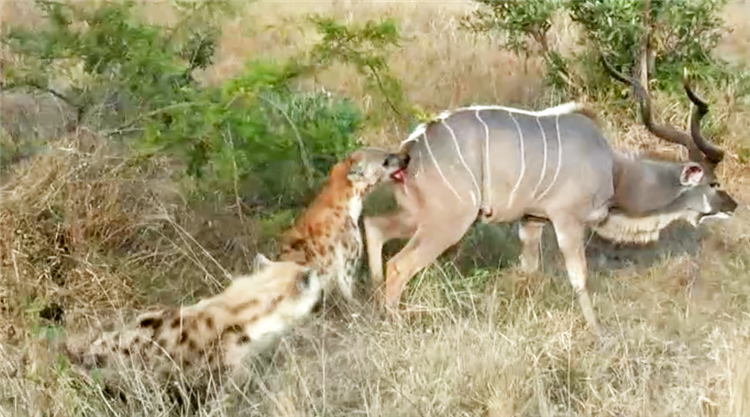
What happened left the tourists who witnessed the scene shocked and sad. The clip also went viral after being posted on social media. Many netizens have expressed their condolences for the impala’s last-minute desperate attempt.
“I’ve always known nature is very harsh, but I never expected it to be so cruel. The image of an antelope being eaten alive, feeling every fiber of my body being ripped open by a predator, is terrifying. I thought that the antelope had enough strength to take back his life, but obviously things are not so easy,” one netizen commented after watching the clip.
Some netizens have criticized those who were just standing outside to film the scene that happened, but did not intervene to save the antelope’s life. However, these opinions have been refuted when most people believe that humans should not interfere with nature but let everything happen according to its laws.
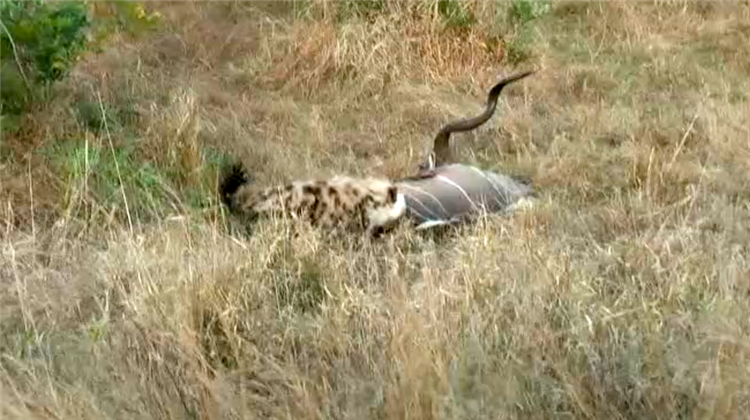
“Nature has its own laws and let everything happen according to that law. Humans should just stand aside and observe and should not interfere in anything. If the antelope were to be saved today. , is there any certainty that it will survive tomorrow? If the antelope is saved, what will be the fate of the African wild dogs?”, one Twitter user commented.
The African wild dog, also known as the spirit wolf or the zebra wolf, is a mammal in the canine family, mainly distributed in Africa. They are highly social animals, living in herds with separate dominance hierarchies between males and females.
African wild dogs are considered masters of the “art of hunting in groups”, when individuals in the pack can work together in a very good way thanks to a sense of discipline and ability to unite. Scientific statistics show that African wild dogs achieve a success rate of up to 75% for each hunting trip.
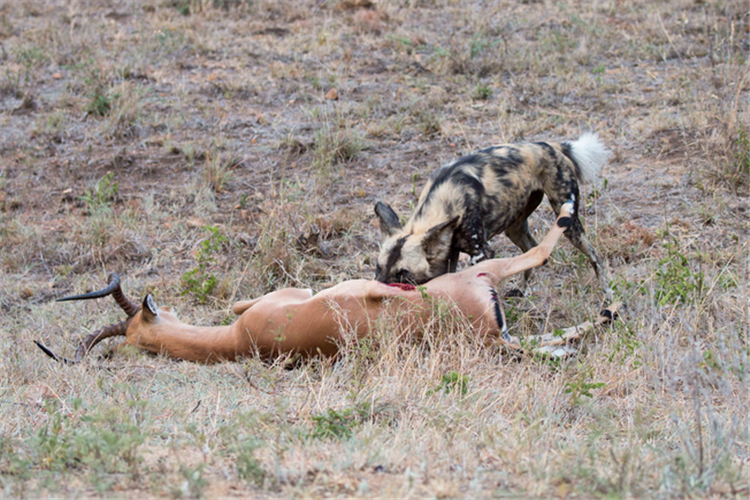
Meanwhile, the impala is one of the most abundant antelope species in the savanna of Africa. Impala antelopes are sexually dimorphic, in which males weigh between 40 and 75 kg and females weigh between 30 and 50 kg. Only male impalas have horns, 45 to 90cm long, while females have no horns.
Due to their large numbers, the impala is a favorite hunting target of savannah carnivores such as lions, leopards, hyenas, and African wild dogs.
